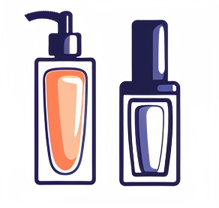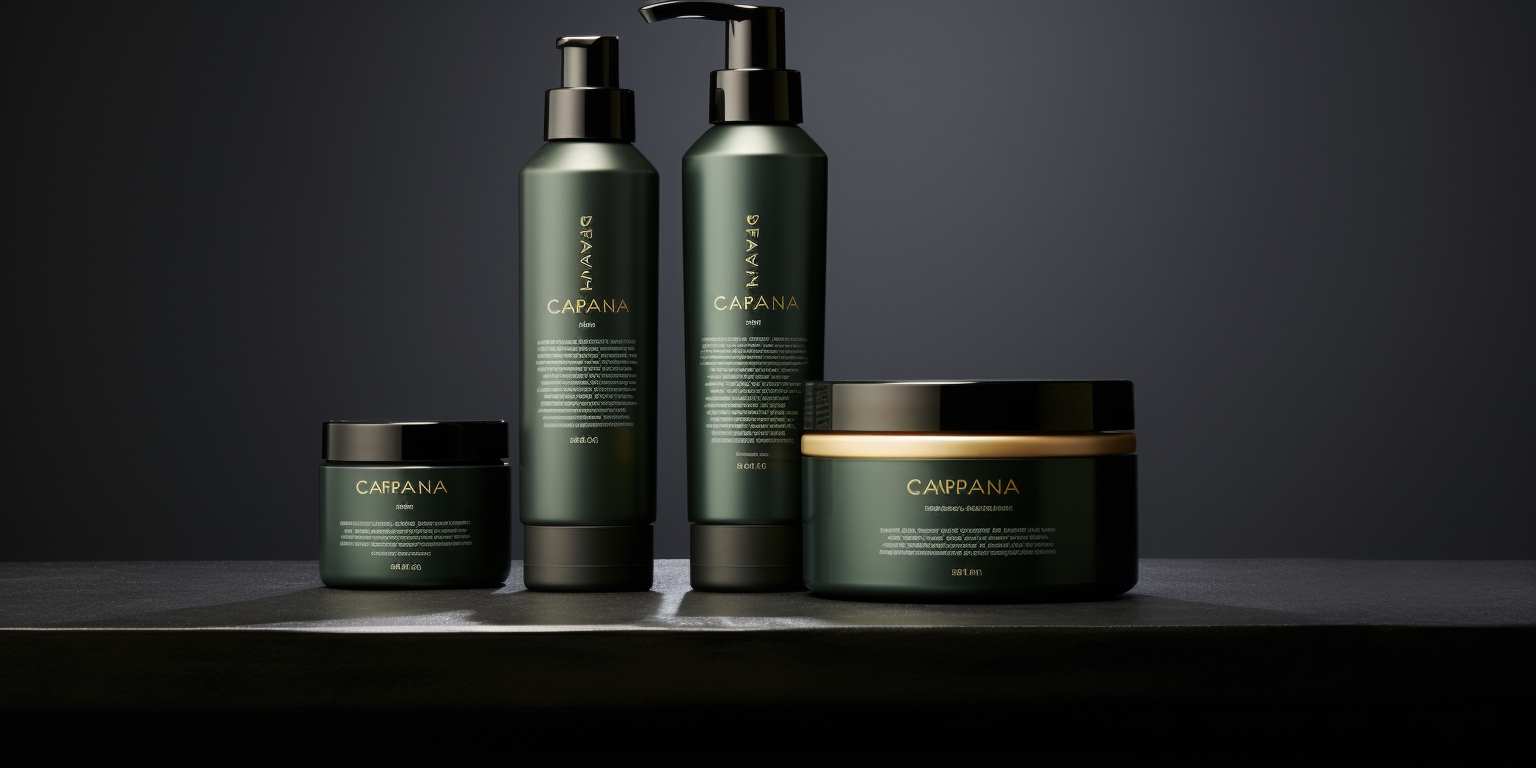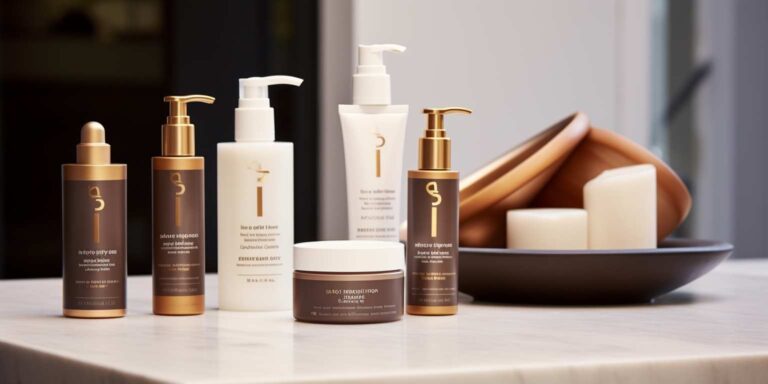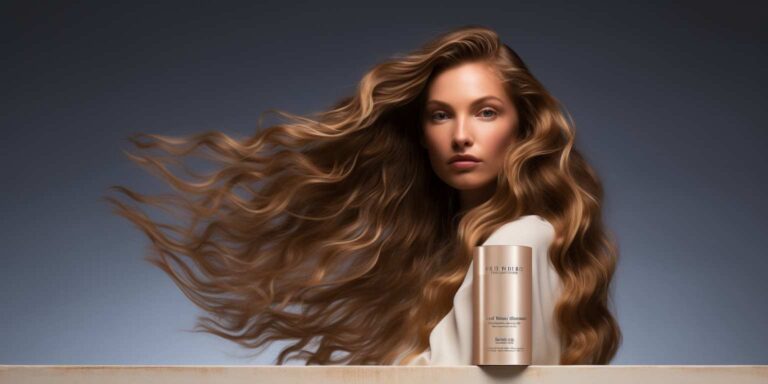Solving the mystery: shampoo for smelly scalp
Imagine this scenario: You’ve just stepped out of the shower, feeling refreshed and ready to conquer the day, only to catch a whiff of an unpleasant odor emanating from your scalp. Embarrassing, isn’t it? A smelly scalp can be a frustrating and confidence-shattering issue, but fear not, for there are solutions at hand.
Understanding the Cause
Before diving into the world of specialized shampoos, it’s essential to understand what causes that unpleasant odor. Several factors can contribute to a smelly scalp, including:
- Poor Hygiene: Not washing your hair regularly can lead to a buildup of sweat, oil, and bacteria on the scalp, resulting in an unpleasant smell.
- Fungal Infections: Conditions like seborrheic dermatitis or scalp psoriasis can cause itching, flakiness, and a foul odor.
- Hormonal Changes: Hormonal imbalances, especially during puberty or menopause, can trigger excess oil production, leading to scalp odor.
Choosing the Right Shampoo
When it comes to tackling a smelly scalp, not all shampoos are created equal. Look for products specifically formulated to address scalp odor. These shampoos often contain antifungal and antibacterial ingredients to eliminate odor-causing microbes while soothing the scalp.
Key Ingredients to Look For:
| Ingredient | Benefits |
|---|---|
| Tea Tree Oil | Known for its antimicrobial properties, tea tree oil can help combat bacteria and fungi on the scalp. |
| Salicylic Acid | Helps exfoliate the scalp, removing dead skin cells and excess oil that contribute to odor. |
| Zinc Pyrithione | Effective against dandruff and seborrheic dermatitis, zinc pyrithione helps keep the scalp clean and odor-free. |
How to Use:
When washing your hair with a specialized shampoo for smelly scalp, follow these steps for best results:
- Wet your hair thoroughly.
- Apply the shampoo to your scalp and massage gently with your fingertips.
- Leave the shampoo on for a few minutes to allow the active ingredients to work their magic.
- Rinse thoroughly and follow up with a conditioner if needed.
Antibacterial shampoo for odor control: what works
When it comes to combating unpleasant odors, antibacterial shampoo emerges as a powerful solution. Not only does it cleanse the hair, but it also addresses the root cause of foul smells – bacteria. The effectiveness of an antibacterial shampoo for odor control lies in its ability to eliminate the microbial culprits that thrive on the scalp.
One of the key ingredients to look for in an antibacterial shampoo is tea tree oil. Renowned for its natural antibacterial and antifungal properties, this essential oil works wonders in keeping microbial activity at bay. Tea tree oil not only tackles the existing bacteria but also helps in preventing their resurgence, ensuring a longer-lasting solution to odor problems.
Salicylic acid is another powerhouse ingredient commonly found in effective antibacterial shampoos. This beta-hydroxy acid exfoliates the scalp, removing dead skin cells and excess oil that can be a breeding ground for odor-causing bacteria. By promoting a healthier scalp environment, salicylic acid contributes significantly to odor control.
For those who prefer a gentler yet effective approach, antibacterial shampoos containing aloe vera are worth considering. Aloe vera not only possesses antibacterial properties but also soothes the scalp, reducing inflammation and irritation. This dual action makes it an excellent choice for individuals with sensitive skin or those prone to scalp issues.
When navigating the realm of antibacterial shampoos for odor control, it’s crucial to distinguish between products that merely mask odors and those that target the microbial source. Opting for a shampoo that contains chlorhexidine can make a significant difference. This powerful antimicrobial agent actively combats bacteria and fungi, providing a thorough and long-lasting solution to odor-related concerns.
Zinc pyrithione, commonly found in dandruff shampoos, is another noteworthy ingredient. While primarily recognized for its effectiveness against dandruff, zinc pyrithione also exhibits antibacterial properties. By addressing both dandruff and bacterial overgrowth, it contributes to a healthier scalp environment, reducing the likelihood of unpleasant odors.
Understanding the unique needs of your scalp is paramount in selecting the right antibacterial shampoo for odor control. While some individuals may benefit from the potent action of ingredients like tea tree oil and chlorhexidine, others may find solace in the soothing properties of aloe vera. It’s a matter of personal preference and the specific scalp conditions one may be dealing with.
Scalp refreshing shampoo for daily use: a must-have
Embark on a daily ritual of revitalization with scalp refreshing shampoo, a game-changer for those seeking a harmonious blend of cleanliness and invigorating care. This daily-use shampoo transcends conventional hair care, offering a sensory experience that goes beyond mere cleanliness.
Picture a formula that not only cleanses your scalp but also leaves it refreshed and revitalized every single day. The secret lies in the meticulously curated ingredients that work in symphony to deliver an unparalleled experience. Peppermint extract, known for its cooling properties, takes center stage, providing an instant sensation of freshness that permeates your scalp.
But it’s not just about the immediate burst of refreshment; this shampoo goes a step further by promoting scalp health in the long run. The unique blend of essential oils and nutrients ensures that your scalp remains hydrated, nourished, and free from irritation. Say goodbye to the discomfort of a dry or itchy scalp.
Imagine starting your day with a soothing massage from this rejuvenating shampoo. The invigorating aroma of menthol combined with eucalyptus not only tantalizes your senses but also works wonders in promoting a sense of well-being. It’s more than just a cleansing routine; it’s a daily self-care ritual.
For those who battle the effects of pollution, sweat, and styling products daily, this shampoo becomes a stalwart ally. The clarifying power of the formula ensures that your scalp is not just clean but thoroughly detoxified, ready to face the challenges of a new day.
Now, let’s delve into the science behind this extraordinary product. The micro-exfoliating action gently removes impurities and dead skin cells, promoting a healthy scalp environment for optimal hair growth. The gentle pH-balanced formula makes it suitable for daily use without the risk of over-drying.
Identifying the causes of scalp odor and how to fight them
Identifying the causes of scalp odor and how to fight them
Scalp odor can be a persistent and embarrassing issue for many individuals, causing discomfort and self-consciousness. Understanding the underlying causes of scalp odor is crucial in effectively combating it and restoring confidence. Here, we delve into the primary factors contributing to scalp odor and provide actionable tips on how to address them.
Causes of Scalp Odor
Several factors can contribute to scalp odor, ranging from poor hygiene practices to underlying medical conditions:
| Poor Hygiene: | Inadequate washing of the scalp can lead to the accumulation of sweat, oils, and dead skin cells, providing an ideal environment for odor-causing bacteria to thrive. |
| Excessive Sebum Production: | Overproduction of sebum, the skin’s natural oil, can create an oily scalp environment that fosters bacterial growth and exacerbates odor. |
| Yeast Infections: | Conditions such as seborrheic dermatitis or dandruff, caused by yeast overgrowth, can result in scalp irritation and unpleasant odor. |
| Environmental Factors: | Exposure to pollutants, cigarette smoke, and other environmental toxins can contribute to scalp odor by depositing residue on the scalp. |
| Medical Conditions: | Certain medical conditions like scalp psoriasis, fungal infections, or hormonal imbalances may manifest with scalp odor as a symptom. |
Combatting Scalp Odor
Addressing scalp odor involves a combination of proper hygiene practices, lifestyle adjustments, and targeted treatments:
- Regular Cleansing: Wash your hair and scalp regularly with a gentle, pH-balanced shampoo to remove dirt, oils, and impurities.
- Scalp Exfoliation: Incorporate a scalp scrub or exfoliating treatment into your routine to slough off dead skin cells and unclog pores.
- Antibacterial Shampoos: Use antibacterial or antifungal shampoos containing ingredients like tea tree oil or ketoconazole to combat microbial overgrowth.
- Balanced Diet: Maintain a healthy diet rich in vitamins, minerals, and antioxidants to support scalp health and regulate oil production.
- Stress Management: Practice stress-reduction techniques such as meditation or yoga, as stress can exacerbate scalp conditions and odor.
- Medical Consultation: If scalp odor persists despite home remedies, consult a dermatologist to rule out underlying medical conditions and receive appropriate treatment.
The importance of a balanced scalp ph for odor prevention
Having a balanced scalp pH is crucial for preventing unpleasant odors and maintaining overall scalp health. The pH level refers to the acidity or alkalinity of a substance, and when it comes to the scalp, maintaining the right balance is essential.
When the scalp’s pH level is balanced, typically around 5.5, it creates an optimal environment for the scalp’s natural flora, which consists of various bacteria and fungi. These microorganisms play a vital role in keeping the scalp healthy by breaking down sweat, oils, and dead skin cells.
If the scalp’s pH level becomes too acidic or too alkaline, it can disrupt the delicate balance of the scalp’s microbiome. An imbalance in the microbiome can lead to an overgrowth of certain bacteria or fungi, resulting in conditions such as dandruff, seborrheic dermatitis, or scalp odor.
One of the primary functions of the scalp’s natural flora is to break down sweat and sebum, the oily substance produced by the sebaceous glands. When these substances are broken down, they produce volatile fatty acids that can contribute to scalp odor if not properly regulated.
By maintaining a balanced pH level on the scalp, you can help ensure that the natural flora remain in harmony, preventing the overgrowth of odor-causing bacteria and fungi. Additionally, a balanced pH can help regulate sebum production, reducing the likelihood of excess oiliness or dryness, both of which can contribute to scalp odor.
There are several ways to maintain a balanced scalp pH. Using pH-balanced shampoos and conditioners can help regulate the scalp’s pH level while still effectively cleansing and conditioning the hair. Avoiding harsh chemicals and overwashing the hair can also help preserve the scalp’s natural pH.
Furthermore, incorporating probiotic or prebiotic products into your hair care routine can promote the growth of beneficial bacteria on the scalp, further supporting a healthy pH balance. These products can come in the form of shampoos, conditioners, or scalp treatments.
Diy remedies for a fresher scalp between washes
Are you battling with a greasy scalp but don’t have the time for a full wash? Fear not! There are DIY remedies to refresh your scalp and keep your hair looking and feeling fresh between washes.
Firstly, let’s talk about the wonders of dry shampoo. This magical product can absorb excess oil and add volume to your hair, giving the illusion of freshly washed locks. Simply spray or sprinkle it onto your roots, wait a few minutes, then brush or massage it out. It’s a quick fix that can make a world of difference.
Another option is to create your own DIY dry shampoo using simple ingredients like cornstarch, baking soda, or even cocoa powder for darker hair tones. Mix these ingredients together, apply to your roots with a makeup brush or your fingertips, and then comb through. Not only will this absorb excess oil, but it will also leave your hair smelling fresh.
For a refreshing scalp treatment, consider apple cider vinegar. Dilute it with water and apply the mixture to your scalp using a spray bottle or cotton pad. Let it sit for a few minutes before rinsing it out. Apple cider vinegar helps to balance the pH level of your scalp and remove buildup, leaving your scalp feeling clean and revitalized.
If you’re dealing with itchiness or dandruff between washes, tea tree oil can be your savior. This essential oil has natural antifungal and antibacterial properties that can help alleviate scalp irritation. Mix a few drops of tea tree oil with a carrier oil like coconut or olive oil, massage it into your scalp, and leave it on for about 30 minutes before washing it out.
Another simple yet effective remedy is witch hazel. This natural astringent can help remove excess oil and soothe inflammation on the scalp. Apply witch hazel to your scalp using a cotton ball or spray bottle, then gently massage it in. It’s a gentle way to refresh your scalp without stripping it of its natural oils.
Lastly, don’t underestimate the power of proper scalp care between washes. Avoid overwashing your hair, as this can strip the scalp of its natural oils and lead to increased oil production. Instead, opt for gentle cleansing techniques and use lukewarm water when washing your hair.
Expert advice on maintaining scalp health and freshness
To maintain scalp health and ensure freshness, it’s crucial to adopt a comprehensive approach that includes proper cleansing, hydration, diet, and lifestyle habits. Neglecting scalp health can lead to various issues such as dandruff, dryness, itchiness, and even hair loss.
Cleansing: Regular cleansing of the scalp is essential to remove dirt, excess oil, and product buildup. Choose a mild shampoo that suits your hair type and scalp condition. Avoid harsh chemicals that can strip the scalp of its natural oils.
Hydration: Just like your skin, your scalp needs hydration. Use a hydrating conditioner after shampooing to replenish moisture. Additionally, consider incorporating scalp serums or oils into your routine to nourish and hydrate the scalp.
Diet: A balanced diet rich in vitamins, minerals, and antioxidants is essential for scalp health. Incorporate foods high in omega-3 fatty acids, vitamin E, and biotin to promote healthy hair growth and scalp condition.
| Food sources for scalp health: | Nutrients |
|---|---|
| Fatty fish (salmon, mackerel) | Omega-3 fatty acids |
| Nuts and seeds (almonds, sunflower seeds) | Vitamin E |
| Eggs, avocados | Biotin |
Lifestyle habits: Avoid excessive heat styling, tight hairstyles, and overwashing, as these can irritate the scalp and weaken the hair follicles. Protect your scalp from the sun by wearing a hat or applying sunscreen to prevent sunburn and damage.
Consult a dermatologist: If you experience persistent scalp issues such as flakiness, inflammation, or hair thinning, seek professional advice. A dermatologist can diagnose underlying conditions and recommend targeted treatments tailored to your scalp needs.







